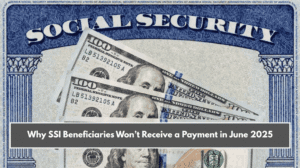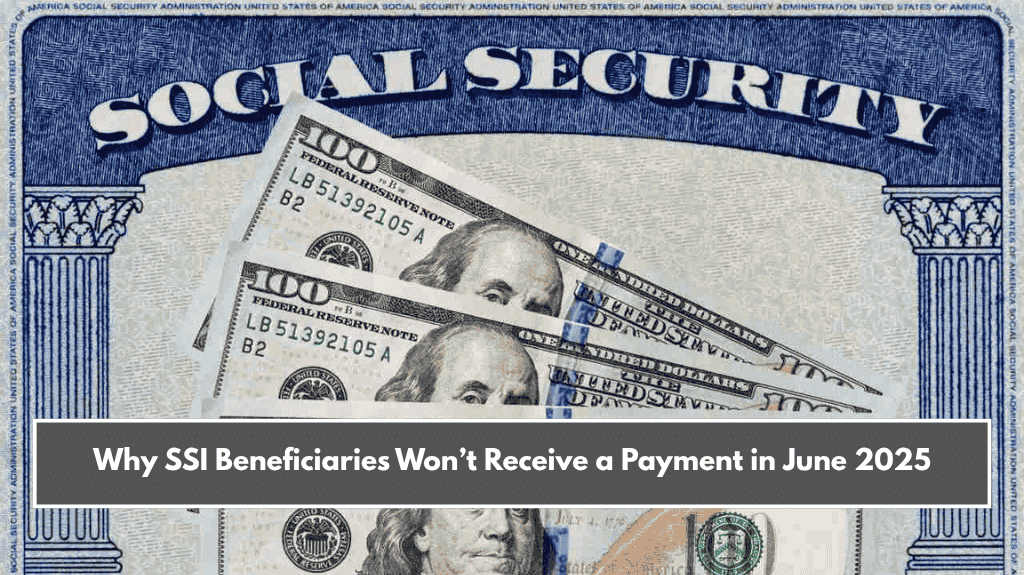Many people don’t realize they can qualify for more than one government benefit at the same time. In the United States, around 2.5 million adults and children currently receive both Supplemental Security Income (SSI) and Social Security. Some even get Medicaid along with these benefits. If you or someone in your family has limited income and resources, you might be eligible for this powerful combination of support programs.
These programs are designed to help different types of needs — and when used together, they can provide financial, medical, and living support for those who truly need it.
What’s the Difference Between SSI and Social Security?
Social Security is usually given to people who have worked and paid taxes during their working years. It includes retirement, disability (SSDI), or survivor benefits. On the other hand, SSI is for people who have low income and limited resources, even if they haven’t worked much or at all.
People who qualify for both can receive monthly cash support from Social Security, plus extra help from SSI to meet basic living expenses.
Who Can Get Both SSI and Social Security?
If you are under 65, you must have a qualifying disability or be blind and meet the income and resource limits. If you are 65 or older, you don’t need to be disabled, but you still have to meet financial eligibility rules.
Over 1.4 million senior citizens in the U.S. are currently receiving both benefits, showing how useful the system can be for older adults living on limited means.
Income & Asset Limits for SSI in 2025
To qualify for SSI, your total monthly income, including Social Security, must be below $967 for an individual and $1,450 for a couple in 2025.
Some types of income like pensions, veterans’ benefits, and unemployment payments also count toward this limit. If you are working, part of your earnings is not counted, which means you can still work a little and get SSI.
When it comes to assets, you must have no more than $2,000 in total resources ($3,000 for couples). This includes cash, savings, stocks, or extra vehicles. But don’t worry — your house and one car are not counted.
Special rules apply if you are married, or if you’re a parent applying for a child. Some states also offer slightly more flexibility in calculating what counts as a resource, especially for minors.
How Medicaid Comes Into the Picture
If you are approved for SSI, in many states you’ll automatically get Medicaid, which helps cover healthcare like doctor visits, prescription drugs, and long-term care services.
States called “1634 states” link SSI with Medicaid directly, so you don’t need to apply again. But in “209(b) states”, you’ll need to fill out a separate Medicaid application, and the rules may be stricter.
If you get Social Security but your income is still low, you might still qualify for Medicaid — especially if you’re also getting SSI. After receiving Social Security Disability Insurance (SSDI) for two years, you usually start getting Medicare, but Medicaid can still help with costs Medicare doesn’t cover.
This combination, often called “dual eligibility”, ensures that people don’t have to choose between food, medicine, or medical care.

How to Apply for All Three Benefits Together
If you think you may qualify, here’s how to start:
- Visit the SSI website or call 1-800-772-1213 to check your eligibility.
- You will need to provide details of your income, assets, and medical condition.
- Social Security offices can also help you apply in person or over the phone.
To apply for Medicaid, you may need to contact your state’s Medicaid office. The process varies by state, so it’s best to get information from your local agency.
If you’re also interested in Medicare, remember that it’s a separate program, mainly for seniors or people with specific long-term conditions. However, it’s possible to be enrolled in both Medicare and Medicaid at the same time.
Online tools like Benefits.gov are helpful in figuring out which programs you’re eligible for.
Getting help from just one government benefit can ease financial stress, but combining SSI, Social Security, and Medicaid can offer much greater support. Whether you are a working adult with a disability, a senior with low income, or caring for a child with special needs, you may be eligible for this full package of benefits.
The key is to apply correctly, keep your documents ready, and follow the rules closely. With the right information and preparation, you can get the help you deserve to lead a stable and healthier life.















